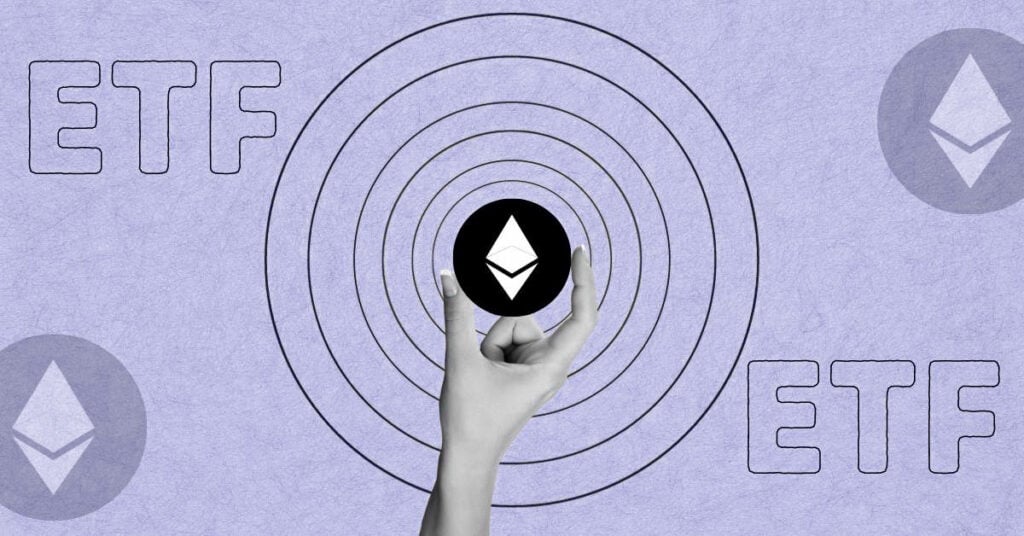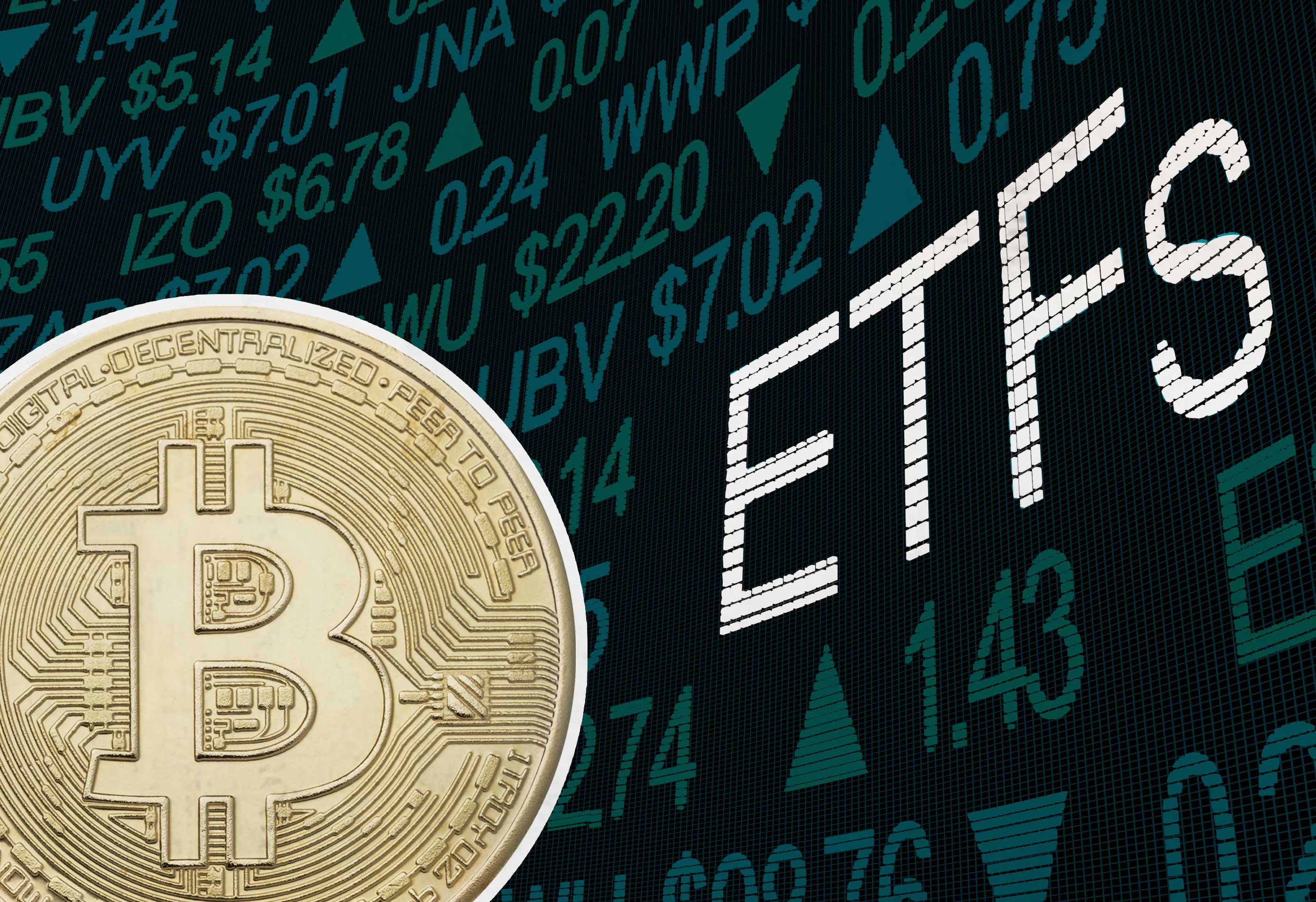Next crypto etf after ethereum is generating significant buzz among investors eager to understand the future landscape of cryptocurrency investments. As the market evolves, the emergence of new crypto ETFs promises to offer fresh opportunities for both seasoned investors and newcomers alike.
Crypto ETFs have gained traction for their ability to provide exposure to digital assets while mitigating some of the risks associated with direct cryptocurrency investments. Ethereum, as the second-largest cryptocurrency, plays a pivotal role in shaping investor sentiment and the development of crypto ETFs, making the exploration of potential candidates for the next ETF an intriguing topic.
Overview of Crypto ETFs

Crypto ETFs, or exchange-traded funds, are investment funds that hold various cryptocurrencies and trade on traditional stock exchanges, providing investors a way to gain exposure to the crypto market without directly owning the assets. These funds have gained significant attention due to their potential to democratize access to cryptocurrency investments while also providing a layer of security and regulatory oversight.The primary difference between traditional ETFs and crypto ETFs lies in their underlying assets.
Traditional ETFs typically hold stocks, bonds, or commodities, while crypto ETFs focus solely on digital currencies. This distinction not only affects the types of investments available but also the risks and benefits associated with each. Some popular crypto ETFs currently available include the ProShares Bitcoin Strategy ETF and the Valkyrie Bitcoin Strategy ETF, both of which focus on Bitcoin futures, marking significant milestones in the acceptance of cryptocurrencies in mainstream finance.
Ethereum and Its Impact on Crypto ETFs

Ethereum has played a crucial role in shaping the crypto ETF market, serving as a second major cryptocurrency after Bitcoin. Its smart contract functionality and diverse use cases have attracted significant investor interest, which, in turn, influences the performance of Ethereum-based ETFs. As Ethereum continues to evolve, the performance of its network and price fluctuations directly affect investor sentiment towards crypto ETFs that include Ethereum.Ethereum-based ETFs are structured to track the price movements of Ethereum directly or hold a basket of assets related to the Ethereum ecosystem.
This structure allows investors to benefit from Ethereum’s growth while mitigating the risks associated with direct cryptocurrency ownership.
Potential Candidates for Next Crypto ETF After Ethereum
Several cryptocurrencies are emerging as potential candidates for the next crypto ETF following Ethereum. Key contenders include:
- Bitcoin (BTC)
-The most established cryptocurrency with widespread recognition. - Cardano (ADA)
-Known for its strong focus on scalability and sustainability. - Solana (SOL)
-Gaining traction for its high transaction speed and low fees. - Ripple (XRP)
-Aiming for institutional use with a focus on cross-border payments.
When comparing these options, market viability is determined by factors such as market capitalization, liquidity, regulatory acceptance, and technological innovation. Regulatory considerations remain paramount for launching new crypto ETFs, with agencies like the SEC scrutinizing applications to ensure investor protection and market integrity.
Analysis of Upcoming Crypto ETFs
A timeline of anticipated crypto ETFs suggests a surge of new products set to hit the market soon after Ethereum-based offerings. The landscape is evolving rapidly, with notable features and investment strategies focusing on diversification across different cryptocurrencies, thematic focus, or innovative trading strategies.Investor sentiment is expected to shift positively with the introduction of new crypto ETFs, especially as they offer more options for exposure to the growing crypto market.
The variety of products can cater to different risk appetites and investment goals, appealing to a broader range of investors.
Risks and Benefits of Investing in Crypto ETFs
Investing in crypto ETFs presents a unique set of risks and benefits compared to direct cryptocurrency investments. The risks include:
- Market volatility – Crypto ETFs can experience significant price swings.
- Regulatory risks – Changes in regulations can affect ETF operations.
- Management fees – Ongoing fees can impact overall returns.
However, the potential benefits are compelling:
- Diversification – Exposure to a basket of cryptocurrencies can reduce risk.
- Accessibility – Easier to trade on traditional exchanges.
- Regulatory oversight – ETFs are subject to regulations that protect investors.
| Risks | Benefits |
|---|---|
| Market volatility | Diversification across various assets |
| Regulatory uncertainties | Ease of access via traditional markets |
| Management fees | Increased investor protection through regulations |
Investor Considerations for Future Crypto ETFs
Investors should contemplate several factors when evaluating new crypto ETFs. Key aspects include:
- Fund structure – Understanding the underlying assets and their management.
- Liquidity – Availability of shares and the trading volume.
- Fees – Management and performance fees that could affect returns.
Conducting due diligence is essential. Investors should research the ETF’s historical performance, management team, and the cryptocurrencies involved. A checklist for assessing the suitability of a crypto ETF might include questions on fund objectives, risk tolerance, and exit strategies.
Market Trends Influencing Crypto ETF Development
Current market trends, such as increased institutional investment and the rise of decentralized finance (DeFi), are significantly influencing the development of new crypto ETFs. Institutional players are bringing legitimacy and stability to the market, which could lead to more favorable regulatory environments.Projections for the future trajectory of crypto ETFs suggest continued growth as mainstream acceptance of cryptocurrencies increases. Innovations in technology and product offerings will likely cater to evolving investor needs, enhancing the overall landscape of crypto investments.
Regulatory Landscape for Crypto ETFs

The current regulatory environment surrounding crypto ETFs is complex and evolving. Authorities like the SEC are working to establish clear guidelines, which can have a substantial impact on the approval and launch of new funds.There is potential for changes in regulations to facilitate more crypto ETF launches, especially as governments and regulators recognize the growing interest in digital assets. Insight into how these regulatory bodies approach the market will shape the future of crypto ETFs, influencing which cryptocurrencies may be included in future funds.
Concluding Remarks
In conclusion, the path forward for the next crypto ETF after ethereum is filled with exciting possibilities. As the market continues to evolve, staying informed about emerging trends, potential candidates, and regulatory developments will be crucial for investors looking to capitalize on this dynamic landscape. The future of crypto ETFs promises innovation and opportunities that could redefine the investment experience.
Detailed FAQs
What is a crypto ETF?
A crypto ETF is an exchange-traded fund that invests in cryptocurrencies or related assets, allowing investors to gain exposure without directly buying the cryptocurrencies.
How does Ethereum influence crypto ETFs?
Ethereum’s performance significantly impacts investor interest and market dynamics, often serving as a benchmark for evaluating other cryptocurrencies’ potential in ETFs.
What cryptocurrencies are being considered for future ETFs?
Candidates such as Bitcoin, Solana, and Cardano are frequently discussed for their potential inclusion in upcoming crypto ETFs due to their market viability.
What are the risks of investing in crypto ETFs?
Risks include market volatility, regulatory changes, and the underlying asset’s performance, which can affect the ETF’s value.
How can investors evaluate new crypto ETFs?
Investors should consider the ETF’s structure, underlying assets, management team, fees, and regulatory compliance before making decisions.


